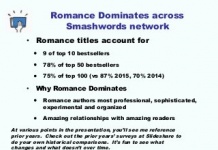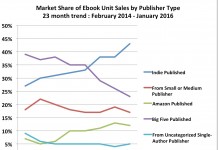 Artist Nina Paley has created a cool collection of images for those ready to rail against DRM.
Artist Nina Paley has created a cool collection of images for those ready to rail against DRM.
She created versions for Readers Against DRM, Authors Against DRM, and Librarians Against DRM.
If you share these sentiments, go to the ReadersBillofRights.info site, download the images and sprinkle them on your blog or web site. The images can be freely distributed, though please cite http://readersbillofrights.info as the source of the images.
DRM stands for “Digital Rights Management.” It’s a copy protection scheme designed to prevent piracy.
While few would disagree that authors deserve compensation for their hard work, the problem with DRM is that it treats law-abiding customers like criminals. DRM controls how, where and when a reader reads books.
Oh, and then there’s the small matter that DRM doesn’t work.
- Readers (who know about DRM) don’t like DRM
- DRM adds expense to books
- DRM makes books complex
- DRM limits accessibility to books, especially for those with vision disabilities who require Text-to-Speach (TTS)
- DRM doesn’t prevent piracy
The biggest threat facing authors and publishers today is not piracy, it’s obscurity. Anything that makes a book less accessible and less enjoyable makes it more obscure.
Piracy is an indication your content is in demand, yet it’s also an indication your content is not available, accessible or affordable to those who want it. Pirates satisfy demand not satisfied by the publisher.
The best method of combat piracy is to make purchasing preferable to pirating.
 How do you do this? First, distribute your book to as many retailers as possible. If your book is available where customers want to shop, it’s easier for a reader to buy it than to look for an illegal copy. Second, price your book fairly. If the book is affordable to your customers, they have less incentive to steal it. Third, make your book available in multiple formats so it can be read on any e-reading device. Fourth, trust your customer by going DRM-free, and communicate to them that you trust them. Rather than threatening the customer with legal action, gently remind them of their ethical obligation to support the hard work of the author (This is the thinking behind the Smashwords License Statement).
How do you do this? First, distribute your book to as many retailers as possible. If your book is available where customers want to shop, it’s easier for a reader to buy it than to look for an illegal copy. Second, price your book fairly. If the book is affordable to your customers, they have less incentive to steal it. Third, make your book available in multiple formats so it can be read on any e-reading device. Fourth, trust your customer by going DRM-free, and communicate to them that you trust them. Rather than threatening the customer with legal action, gently remind them of their ethical obligation to support the hard work of the author (This is the thinking behind the Smashwords License Statement).
At the risk of beating a dead horse (literally and figuratively), if a publisher were to do the opposite of my above four recommendations, then what you’d have are the practices of the big 6 traditional book publishers.
Isn’t it ironic that the DRM they require for their books is in reaction to a fear of a practice (piracy) encouraged by their own customer-unfriendly business policies? I’m referring to their practice of scarcity-as-a-business-model, high ebook prices, limited worldwide distribution, limited formats and unwillingness to trust the customer. For more horse-beating, see my last post, The Author Uprising against Big Publishing.
There will always be scoundrels and cheapskates who will never pay for anything. Those people would never be your customer anyway so they don’t represent a lost sale. And who knows, they might even love your book so much they rave about it to their more ethically-inclined friends.
Some best-selling authors such as Paolo Coelho are known to have deliberately encouraged piracy of their books. Kevin Kelly, last year at the Writing for Change Conference in November, told the crowd he views piracy as a tax on success, a tax he said he’s happy to pay.
A couple years ago, I remember one prospective Smashwords author wrote me and said, “Do you think I’m an idiot? There’s no way I’m going to publish DRM-free at Smashwords. Within days there will be millions of stolen copies across the Internet!” I shared this story later in a talk I gave at the IBPA’s Publishing University conference in New York, and afterward one author walked up to me and said, “Are you kidding? I’d pay to have my book stolen a million times!”
There’s also a growing body of evidence that piracy doesn’t harm sales. Might piracy even improve sales? This is the conclusion author Neil Gaiman came to, as he explains in this must-watch video below.
Several major ebook retailers, including Apple, Barnes & Noble and Amazon, have already dropped DRM as a requirement in their ebook stores. Authors and publishers now have more freedom to publish DRM-free.
Some readers are rebelling against DRM. Check out Lost Book Sales. It’s a fun site sponsored by Jane Litte of Dear Author in which readers list books they would have purchased but didn’t because the books were DRM-infected.
Are you a reader? How do you feel about DRM?
My thanks to author and blogger Karl Drinkwater, whose interesting blog post, DRM Will Kill us All is where I first discovered the images of listentomyvoice.


































I think most publishers realize that people have the ability to pirate anything. I think it’s a little intellectually dishonest (especially from a distributor of content who interacts with publishers on a daily basis) to paint “proponents of DRM” as not knowing that. While admittedly a nuisance, DRM is theoretically most effective at preventing “casual sharing”. Casual sharing is even more difficult to measure than piracy, so I doubt there will ever be a report measuring the effectiveness of DRM on that. Mike Shatzkin has written on this point in these 2 posts: http://www.idealog.com/blog/what-the-powers-that-be-think-about-drm-and-an-explanation-of-the-cloud and http://www.idealog.com/blog/drm-may-not-prevent-piracy-but-it-might-still-protect-sales. Some decent discussion in the comments there too.
Now, I’m no fan of DRM in general, but if the price and overall usability of the product is good (Amazon and Safari Books Online in books, Steam in videogames, etc.) most people (the aggregate of purchasers, not the vocal people on message boards) don’t seem to mind it. There are definitely much more terrible implementations of DRM than good ones though. I guess Overdrive is one that’s up for debate, but I’m not sure how libraries think they’ll get popular content from publishers otherwise, as Howard has discussed at length on this website.
Perosnally I see no evidence for either points you make here Anon.
“DRM is theoretically most effective at preventing “casual sharing”” evidence ?
“if the price and overall usability of the product is good, most people don’t seem to mind it” evidence ?
I would suggest that they do indeed mind it and that it has no effect whatsoever on casual sharing. In addition I would suggest that it’s enraging factor causes astronomically more copying, sharing and downloading than could ever be compensated for by any theoretical reduction in casual sharing.
As regards ‘overall usability and price’ I seriously take issue with that. Selling a nobbled product that can only be read on one kind of eReader, cannot share, cannot lend, cannot sell on, etc etc etc at a price higher than a paperback ??. That doesn’t seem like the essence of usability and value to me….
Howard: I can’t speak to the “casual sharing” matter, but I suspect most people really don’t mind DRM. Further, I suspect most people don’t even know what DRM is.
If you’re prevented from doing something you wouldn’t want to do anyway, do you ever notice the restriction? If I never try to open a door, how will I know that it’s locked? I suspect that the majority of people don’t currently care about being able to copy books from one device to another, or do any of the other things that they would otherwise be able to do with them without DRM.
For the most part, it takes the real power users to care about doing something like that. And the majority of people who buy e-books are dilettantes, not power-users. They’ll never even notice the DRM because they’ll never run up against any problems caused by it. As a tech support veteran, trust me on this: the number of people who want to use anything more than just the basic functions of any piece of equipment are relatively few.
Not to say that I like DRM either. But the problem facing those who want to boycott DRMed formats until publishers get the idea is that there are far too few of them to have any effect. The vast majority of readers continue to buy and read DRM-laden books without understanding there might be a reason why they shouldn’t want to. Until that changes, there’s not much DRM’s opponents can do in terms of fomenting mass protests.
I’m a reader AND an author, and I detest DRM. I think Gaiman made the salient points; but it is hard to argue against the emotional knee-jerk reaction many authors have to the idea “they stole my book!”…even if they are running contests every other week to give their book away. *shakes head*
Until there is some real, hard research done on how piracy affects sales I don’t think authors are going to listen. Meanwhile, as a reader, DRM just leaves a bad taste in my mouth — some people steal, sure they do; is that any reason to treat ME like a criminal, after I’ve paid for my product? Bah.
This is why DRM is bad. Two days ago I purchased a book (When Christ and his Saints Slept written by Sharon Kay Penman) from Apple for the ipad and ibooks. I was so enjoying the book that I though maybe I could read a bit of it at work. (I know, but we work really hard the rest of the time). I am not allowed to have my iPad at work for various reasons (Games, videos), but they allow us to use a Kindle to read on. I tried to, but was unable to move my book to my Kindle. So now I’m faced with having to pay twice or go down a road that should not be traveled. There are two more book in the series and I’m now faced with a conundrum. What platform should I get it on. And yes the Kindle is probably the best option, but I really prefer the iPad at home to read on. Of course a quick Google search and I see a third option but I really don’t want to do it, I don’t want to rip off the author, at the end of the day though my righteous feeling may be eroded.
I’m completely indifferent to the DRM aspect of an eBook. As long as I can buy the eBook I want (geographical restrictions permitting) in the format that I want and be able to open the eBook on the device of my choice using the app of my choice then I don’t give any further thought to DRM.
I have no desire to share or pass on my eBooks. One thing I love eBooks over print books is that I now don’t get asked to lend books to friends and relatives. Now I don’t get print books returned to me that have been marked, peed on by the cat, had the page corners turned or been dropped in the bath. I don’t buy eBooks with the thought of selling them when I’ve finished. I buy books for my benefit, noone elses and now I don’t have to share.
Whilst I am now buying more eBooks that have no DRM, it is because of the geographical restrictions imposed on me by the main publishers that I have done so. I have now stopped buying several of my favourite mainstream authors and have diverted my book budget to more new-to-me authors and genres.
I think its true that most people don’t currently understand DRM. But most of the dedicated e-readers are relatively new. In the future, when people want to switch to a different reader for some reason, they’ll be in for a nasty surprise. Early adopters have already run into this problem.
As for “casual lending,” why on earth would authors and publishers want to prevent it? I know for a fact that I have generated sales for some of my favorite authors by lending their books. Just as the majority of people are not pirates, most of them are not parasites either; if a friend lends them a book and they like the series or author, they’ll generally begin buying their own copies.
What is substantially different between ebooks and digital music that one “needs” DRM while the other gets along fine (if not better) without it? Sorry, I don’t get it.
Katyhleen said: “when people want to switch to a different reader for some reason, they’ll be in for a nasty surprise. ”
Well said Kathleen. ShellBell might be one of those. The anti DRM campaign is growing and awareness spreading.
DRM is a nice idea, but nonetheless a nuisance and I think it will ultimately harm sales to the point of discontinuance. The best defense against piracy is when individual folks refuse to download or share. When I buy an eBook–and really want to recommend it–I write a review; I do not ‘loan’ the book out, having paid good money for it, but say to interested parties: “It was worth buying. Get your own copy. Support authors!”
Now, this could be merely because I am an author and am a bit touchy about getting paid for my hard work, but that is another issue. DRM will likely be looked back upon as but one of the initial, failed attempts at trying to curb the murky, swelling, virus-laden tide of eBook piracy.
I have great respect and admiration for Mark and I think Smashwords is wonderful. But I completely and totally disagree with this post. It would be a very long comment to do justice to this topic – perhaps for another venue. But I’ll try some condensation:
1. It is not lost on me that librarians are mentioned in the headline, but not the body. If there is no copy protection or expiration on an ebook, it can not be called a loan. eBook lending would cease to exist and thus would libraries cease to exist in the digital future – as no reasonable person could call it lending – and mainstream publishers would be first to see that.
2. What needs most protection from large scale casual sharing is not obscure titles, as aptly pointed out, but smash hits. Which for better or worse, is the financial engine of the greater book business.
3. I agree DRM for eBooks is broken. But I think it is because of lack of coordination in the industry, and not because of the inherent nature of DRM. DVD’s just work. This is what is needed here. Greed and the platform maker’s desires to use DRM to create silos is undermining the financial and social underpinnings that anchor writing as a profession. And it certainly hampers innovation in software and services.
4. Fences are most often *not* barriers that actually prevent trespass. They are cultural and visceral means of communicating boundaries. Device users expect digital “objects” to inherently convey their boundaries. e.g. if I (the consumer) have to read and understand your ULA/copyright statement in order to be able to act in compliance with your license and the law….you – the product designer – have failed me. Is a well kept grassy field in the city perceived as a park unless there is a fence around it or a house in the middle? This is one reason DRM on ebooks is required by law in some European countries.
5. I think giving people – everyone – the power to manage access to their digital creations is what we need to vastly improve rather than take away – now more than ever. To create a world where “I” control who reads my mail. I control who reads my book. I control who views videos of my kids in the bath tub – that I do want to share with grandma. That control will never be good enough. But we should keep trying to make it better. Not throw up our hands and out the towel.
Actually, on another reading, I don’t really disagree with anything in this post. But, I do have a problem with equating a class of technology with specific implementation(s) of such. And, not all content is the same either: indie novel vs medical text book vs legal case law book vs sheet music vs industry analysis report vs medical history vs personal diary, etc and thus different models and tech make sense. I just think that being “against” a class of technology is a problematic stance in general (except those creepy talking Barney robots) I fully understand why DRM can suck (more intimately than most folks actually)- and why that is a compelling topic given the prevailing winds. But still, I think we need to have some balance or at least precision in our discussions, or we will just create more problems. So instead of saying “Librarians against tech class X”, maybe we should say “Readers against X problem” or “Writers for X wonderful experience” or” Librarians for X-ier access to stories and knowledge”.